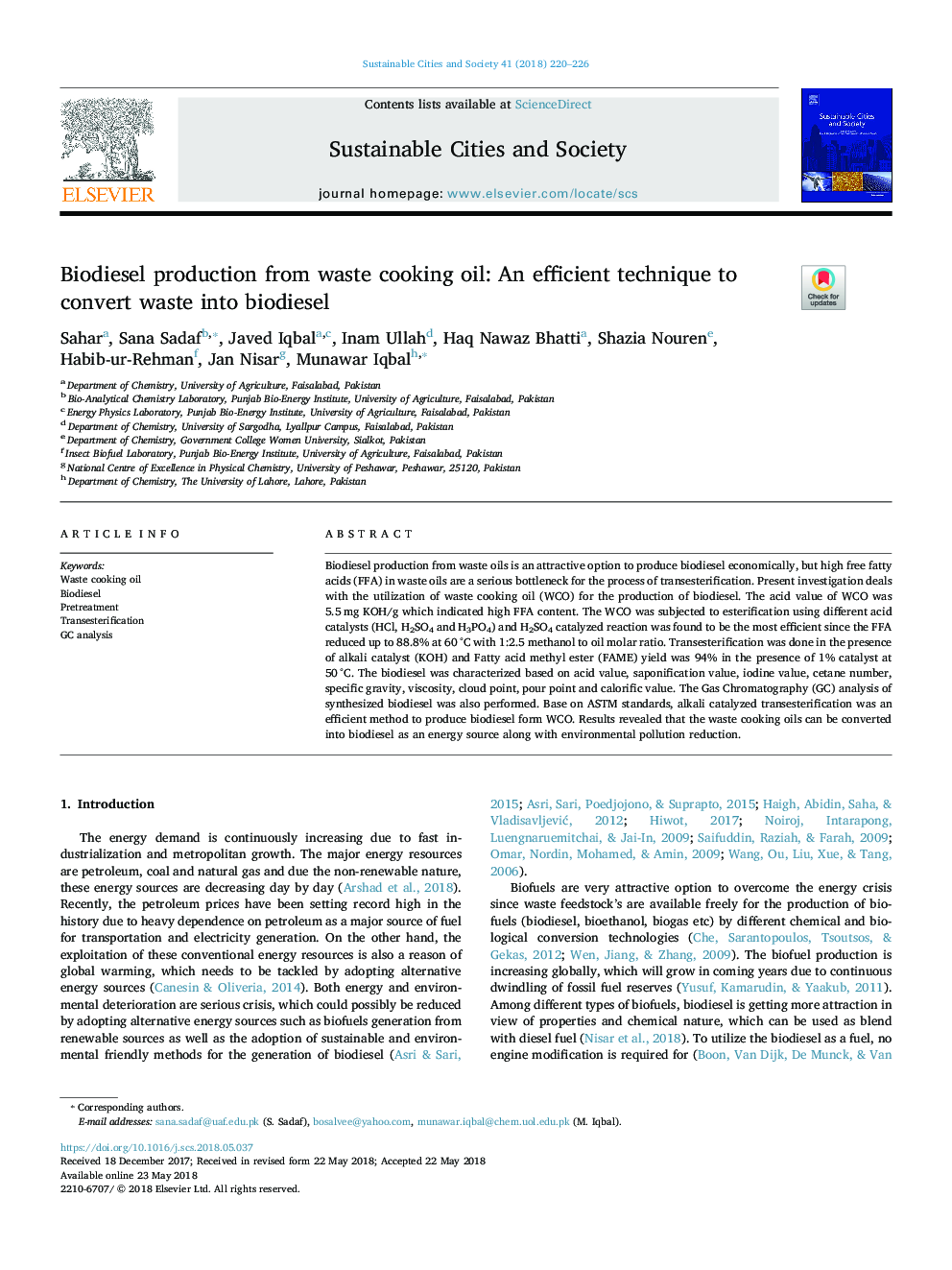| Article ID | Journal | Published Year | Pages | File Type |
|---|---|---|---|---|
| 6774958 | Sustainable Cities and Society | 2018 | 7 Pages |
Abstract
Biodiesel production from waste oils is an attractive option to produce biodiesel economically, but high free fatty acids (FFA) in waste oils are a serious bottleneck for the process of transesterification. Present investigation deals with the utilization of waste cooking oil (WCO) for the production of biodiesel. The acid value of WCO was 5.5â¯mg KOH/g which indicated high FFA content. The WCO was subjected to esterification using different acid catalysts (HCl, H2SO4 and H3PO4) and H2SO4 catalyzed reaction was found to be the most efficient since the FFA reduced up to 88.8% at 60â¯Â°C with 1:2.5 methanol to oil molar ratio. Transesterification was done in the presence of alkali catalyst (KOH) and Fatty acid methyl ester (FAME) yield was 94% in the presence of 1% catalyst at 50â¯Â°C. The biodiesel was characterized based on acid value, saponification value, iodine value, cetane number, specific gravity, viscosity, cloud point, pour point and calorific value. The Gas Chromatography (GC) analysis of synthesized biodiesel was also performed. Base on ASTM standards, alkali catalyzed transesterification was an efficient method to produce biodiesel form WCO. Results revealed that the waste cooking oils can be converted into biodiesel as an energy source along with environmental pollution reduction.
Related Topics
Physical Sciences and Engineering
Energy
Renewable Energy, Sustainability and the Environment
Authors
Sahar Sahar, Sana Sadaf, Javed Iqbal, Inam Ullah, Haq Nawaz Bhatti, Shazia Nouren, Habib-ur-Rehman Habib-ur-Rehman, Jan Nisar, Munawar Iqbal,
